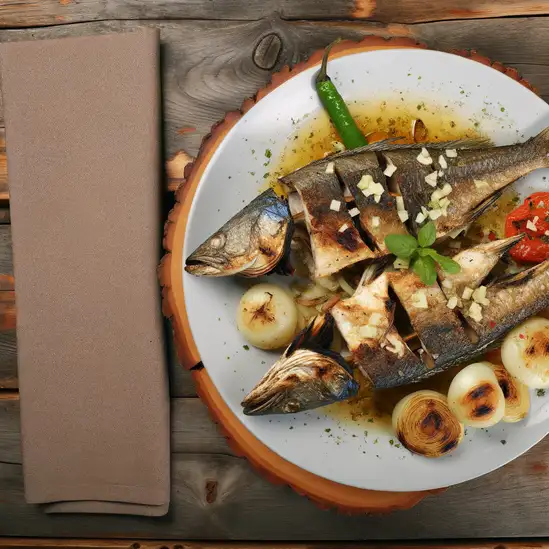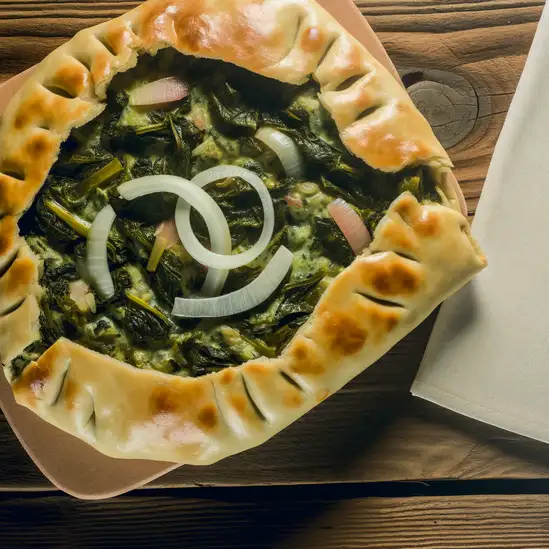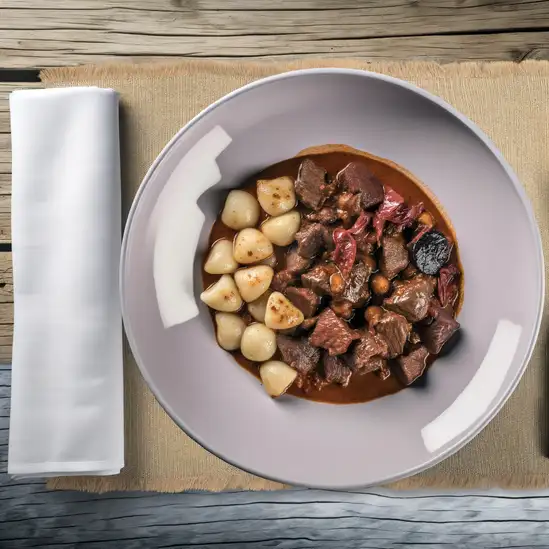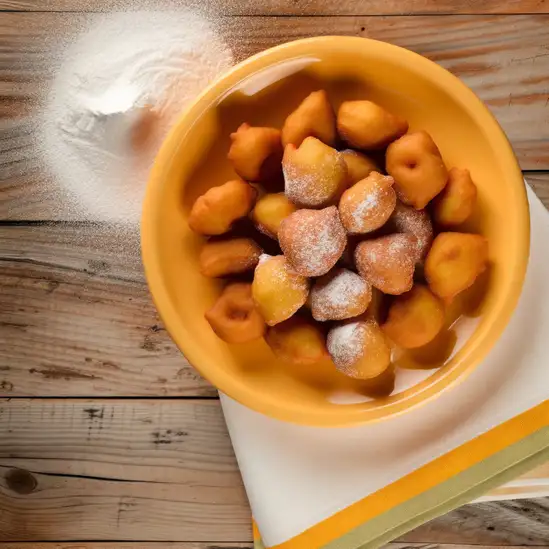



If you’re dreaming of a place where the Adriatic Sea kisses the shore with crystal-clear waves and the sun seems to linger just a little longer,Tučepi is that kind of magic. Walking along its pebble beach,you’ll hear the gentle rhythm of water mingling with the distant chatter of locals and the occasional clink of glasses from seaside cafés. The air carries a salty freshness,mixed with the subtle scent of pine trees that hug the coastline,making every breath feel like a mini escape. Tučepi has this laid-back charm that feels both timeless and inviting. The town itself is a cozy cluster of whitewashed houses with terracotta roofs,framed by rugged mountains that rise dramatically behind it. It’s the kind of place where you can wander through narrow streets,stumble upon a family-run konoba (tavern),and savor freshly grilled fish paired with a glass of local wine,all while soaking in the warm smiles and genuine hospitality of the people. What really sets Tučepi apart is its blend of natural beauty and authentic Dalmatian culture. Whether you’re hiking the nearby trails with panoramic views or simply lounging by the sea,there’s a peaceful rhythm here that slows time down. It’s not just a destination; it’s a feeling — one of sun-soaked afternoons,laughter echoing over the water,and the simple joy of being somewhere that feels like a second home.
The information on this page is currently being reviewed by Tripkliq and should be used as a guide only
Eng word: Hello
Eng pronunciation: Bohk
Local language: Bok
Eng word: Goodbye
Eng pronunciation: Doh-vee-jen-ya
Local language: Doviđenja
Eng word: Thank you
Eng pronunciation: Hvah-lah
Local language: Hvala
Eng word: How much
Eng pronunciation: Koh-lee-koh
Local language: Koliko
Eng word: Toilet
Eng pronunciation: Toh-ah-let
Local language: Toalet
Eng word: Help me
Eng pronunciation: Poh-moh-zee mee
Local language: Pomozi mi
Eng word: Yes
Eng pronunciation: Dah
Local language: Da
Eng word: No
Eng pronunciation: Neh
Local language: Ne
Eng word: Excuse me
Eng pronunciation: Oh-proh-stee-teh
Local language: Oprostite
Tučepi has a rich history dating back to ancient times, with evidence of Illyrian tribes inhabiting the area. Archaeological findings, such as burial mounds and artifacts, highlight its significance in the region's early history.
During the Roman Empire, Tučepi was part of the province of Dalmatia. Remnants of Roman villas and roads can still be found in the area, showcasing its importance as a settlement during this era.
The Church of St. George (Crkva Svetog Jurja), built in the 13th century, is one of the oldest preserved structures in Tučepi. It stands as a testament to the town's medieval heritage and religious traditions.
Tučepi was under Venetian rule from the 15th to the 18th century. This period brought economic growth and cultural influences, which are still evident in the town's architecture and traditions.
Tučepi's history is closely tied to the Biokovo Mountain, which provided protection from invaders and served as a natural resource for the local population. The mountain remains a symbol of the town's resilience and natural beauty.
The original settlement of Tučepi was located higher up on the slopes of Biokovo Mountain. After a devastating earthquake in 1962, much of the population moved closer to the coast, where the modern town now thrives.
While not directly in Tučepi, the nearby Franciscan Monastery in Makarska has historical ties to the region. It houses a rich collection of artifacts and is a cultural landmark for visitors exploring the area.
Tučepi transformed into a popular tourist destination in the mid-20th century. Its pristine beaches, crystal-clear waters, and welcoming atmosphere have made it a favorite spot for visitors from around the world.
Kaštel Tučepi, a historic fortress, was built to protect the town from Ottoman invasions. Today, it stands as a reminder of the town's strategic importance and its efforts to safeguard its people.
In Tučepi, the most common Power Adaptor is Type C, Type F.



A dish made by slow-cooking meat and vegetables under a bell-like lid, often featuring lamb or octopus, and served with potatoes.

Grilled fish, typically fresh catch from the Adriatic Sea, seasoned with olive oil, garlic, and herbs.

A savory pie filled with Swiss chard and onions, encased in thin dough, and baked until crispy.

A rich, flavorful dish made with marinated beef, cooked with a variety of vegetables and served with homemade pasta.

Small, sweet doughnuts flavored with citrus and often dusted with powdered sugar, popular during festive seasons.

A traditional Dalmatian beef stew, marinated in vinegar and spices, slow-cooked with prunes and served with gnocchi.

A traditional fish stew made with various types of fish, tomatoes, and spices, typically served with polenta.
If you ever find yourself wandering through Split,it’s like stepping into a living,breathing storybook where ancient history and vibrant modern life dance together effortlessly. The moment you stroll along the Riva promenade,the salty breeze from the Adriatic mingles with the aroma of fresh espresso and grilled seafood wafting from nearby cafés. Locals chat animatedly in the sun-dappled squares,their laughter blending with the distant hum of boats bobbing gently in the harbor. There’s a laid-back energy here that feels both timeless and alive,inviting you to slow down and soak it all in.
Split’s heart beats strongest in Diocletian’s Palace,a sprawling Roman fortress that’s less a museum and more a neighborhood where people live,shop,and gather. Walking through its ancient stone alleys,you’ll catch glimpses of colorful markets,artisan shops,and cozy taverns tucked into centuries-old walls. At night,the city transforms as lanterns flicker on,and the sound of live klapa singing—traditional a cappella harmonies—drifts through the air,wrapping you in a warm,soulful embrace.
What really makes Split unforgettable is how effortlessly it blends the old with the new. You can savor a plate of fresh octopus salad while watching fishermen haul in their catch,then wander to a rooftop bar for a cocktail as the sun sets behind the islands. It’s a place where every corner tells a story,every meal feels like a celebration,and every moment invites you to become part of its ongoing tale.
If you ever find yourself wandering through the sun-drenched streets of Dubrovnik,you’ll immediately feel like you’ve stepped into a living storybook. The city’s ancient stone walls rise proudly against the sparkling Adriatic,and as you stroll along the marble-paved Stradun,the salty sea breeze mingles with the scent of fresh pine and blooming bougainvillea. There’s a rhythm here—a gentle hum of life where history and modern charm dance together effortlessly.
Dubrovnik’s character is woven into every corner:the clatter of café cups,the murmur of locals chatting in cozy taverns,and the distant call of seagulls overhead. You can almost taste the city in the air—briny and fresh,with hints of grilled seafood and ripe figs from the markets. Sitting at a seaside restaurant,watching the sun dip behind the fortress walls,you’ll savor dishes bursting with Mediterranean flavors,paired with a glass of crisp Croatian white wine.
What makes Dubrovnik truly special is how it balances its rich past with a vibrant present. The city’s narrow alleys invite exploration,revealing tucked-away galleries,artisan shops,and lively squares where music spills out into the streets. Whether you’re tracing the footsteps of ancient mariners or simply soaking up the golden light on a quiet terrace,Dubrovnik feels like a warm embrace—inviting,timeless,and utterly unforgettable.
Imagine stepping into a sun-drenched town where lavender-scented breezes mingle with the salty kiss of the Adriatic Sea—that’s Hvar for you. From the moment you wander through its ancient stone streets,there’s a relaxed yet vibrant energy that wraps around you like a warm embrace. The sunlight bounces off terracotta rooftops,and the sound of laughter spills out from cozy cafés where locals sip espresso and chat animatedly. It’s a place where history and modern life dance effortlessly together.
As you stroll along the harbor,sleek yachts bob gently beside fishing boats,and the air carries the faint aroma of grilled seafood and fresh herbs. The town’s medieval walls and the imposing fortress overlooking the bay tell stories of centuries past,while the lively markets burst with ripe figs,olives,and sun-ripened tomatoes. At sunset,the sky blazes in shades of pink and gold,and the waterfront buzzes with music drifting from open-air bars,inviting you to linger just a little longer.
What makes Hvar truly special is its blend of authenticity and joie de vivre. It’s not just a place to see but a place to feel—whether you’re savoring a glass of local Plavac Mali wine,exploring hidden coves by boat,or simply watching the world go by from a shaded terrace. Hvar’s charm lies in its ability to make you slow down,breathe deeply,and soak in the simple pleasures of life by the sea.
If you ever find yourself wandering the Dalmatian coast,Zadar is one of those places that sneaks up on you with its quiet charm and unexpected magic. The moment you step onto its ancient stone streets,there’s this warm,timeless feeling—like the city is gently humming a tune just for you. The salty breeze from the Adriatic mingles with the scent of fresh pine and blooming jasmine,wrapping around you as you stroll along the waterfront. It’s a place where history isn’t just in museums; it’s alive in the crumbling Roman ruins,the medieval churches,and the lively squares where locals gather to chat and sip coffee.
What really sets Zadar apart is its playful spirit. You’ll hear it in the waves as they dance through the Sea Organ,an extraordinary installation that turns the sea’s movement into haunting melodies. And just a few steps away,the Sun Salutation lights up the night with a mesmerizing display of colors,making the waterfront feel like a celebration of nature and art. Grab a seat on the stone benches,watch the sun dip below the horizon,and you’ll understand why Alfred Hitchcock once called Zadar the most beautiful sunset in the world.
The city’s vibe is relaxed but vibrant,with cozy konobas serving up fresh seafood and local wines that taste like the essence of the region. Whether you’re wandering through the bustling market,exploring narrow alleys,or simply soaking in the views from a café terrace,Zadar invites you to slow down,breathe deeply,and savor every moment.
If you ever find yourself dreaming of a place where history whispers through narrow stone streets and the sea breeze carries the scent of pine and salt,Korčula is that kind of magic. Walking through its medieval walls feels like stepping into a living postcard—sunlight dapples the terracotta rooftops,and the gentle lapping of the Adriatic invites you to slow down and soak it all in. There’s a rhythm here,a laid-back pulse that makes you want to linger over a glass of local white wine or fresh seafood caught just hours before.
The town’s character is a beautiful blend of old-world charm and vibrant local life. You’ll hear the melodic chatter of locals in the market,the clinking of glasses in cozy tavernas,and maybe even the distant strum of a guitar during an impromptu street performance. Korčula’s narrow alleys are lined with fragrant lemon trees and bursts of bougainvillea,and every corner seems to tell a story—from the ancient cathedral to the tiny artisan shops where you can find handcrafted olive oil or honey.
What really sets Korčula apart is its sense of place—rooted in tradition but alive with warmth and welcome. Whether you’re savoring a plate of black risotto while watching the sunset paint the sky in fiery hues or wandering the quiet beaches where the water is impossibly clear,you’ll feel like you’ve discovered a slice of the Adriatic that stays with you long after you leave.
Imagine stepping into a place where every narrow cobblestone street whispers stories from centuries past,and the salty breeze from the Adriatic Sea mingles with the scent of fresh pine and blooming bougainvillea. That’s Trogir for you—a charming,sun-drenched town that feels like a living museum but with a lively,warm heartbeat. As you wander through its maze of medieval alleys,you’ll catch glimpses of ancient stone buildings,ornate churches,and cozy cafés spilling out onto tiny squares where locals sip espresso and chat animatedly.
The vibe here is effortlessly relaxed yet rich with history and culture. You can hear the gentle lapping of waves against the harbor,the distant call of seagulls,and the soft murmur of conversations in Croatian,Italian,and English. At sunset,the golden light bathes the old town in a magical glow,making it the perfect time to savor a plate of fresh seafood—imagine tasting the briny sweetness of grilled fish paired with a crisp local white wine while watching fishing boats bob gently in the harbor.
What makes Trogir truly special is how it balances its deep-rooted heritage with a welcoming,unpretentious spirit. It’s not just a place to see but a place to feel—where history,nature,and everyday life blend seamlessly. Whether you’re exploring the fortress walls,browsing artisan shops,or simply sitting by the water with gelato in hand,Trogir invites you to slow down and soak in its timeless charm.
Tourists may be charged excessive fees for renting sunbeds, umbrellas, or other beach equipment, especially in high-demand areas.
Unlicensed exchange offices or individuals may offer poor exchange rates or charge hidden fees when exchanging foreign currency.
Scammers create fake online listings for apartments or villas, collect deposits, and disappear, leaving tourists stranded.
Unlicensed individuals may pose as tour guides, offering subpar or nonexistent services after collecting payment.
Some restaurants may inflate bills by adding items not ordered or charging higher prices for tourists compared to locals.
Tourists may be charged excessive fees for parking in unofficial or private lots, especially during peak tourist seasons.
Vendors may sell counterfeit goods, low-quality souvenirs, or overcharge tourists who are unfamiliar with local prices.
Taxi drivers may take longer routes or fail to use the meter to overcharge tourists unfamiliar with the area.
The possession, use, and distribution of recreational drugs are illegal in Croatia, including Tučepi. Penalties for drug-related offenses can be severe, including fines and imprisonment. Tourists should avoid any involvement with illegal substances and be cautious about carrying prescription medications, ensuring they have proper documentation if required.
In Tučepi, Croatia, smoking is generally allowed in outdoor public spaces unless otherwise indicated. However, smoking is prohibited in enclosed public areas such as restaurants, cafes, and public transportation, unless there are designated smoking areas. Tourists should look for 'No Smoking' signs and respect local regulations. Beaches may also have specific rules regarding smoking, so it’s best to check for signage.
Vaping in Tučepi follows similar regulations to smoking. It is generally allowed in outdoor spaces but prohibited in enclosed public areas unless explicitly permitted. Tourists should be mindful of local customs and avoid vaping in crowded or family-oriented areas, even if there are no explicit restrictions.
What are other people saying about Tučepi?
Recent Social posts about Tučepi
There is nothing to show you for now.